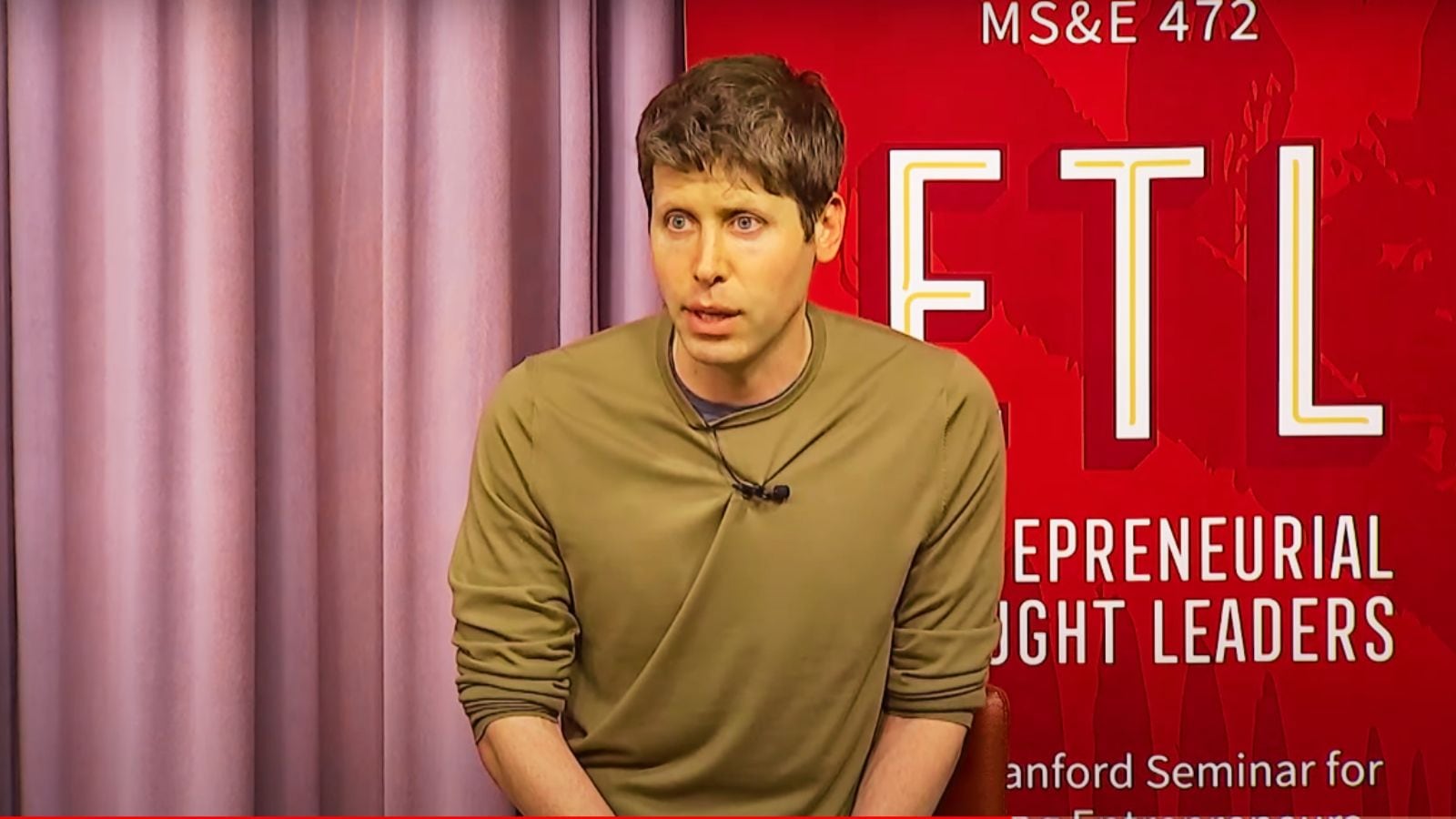OpenAI eyes launch of AI ‘super-agents’ capable of PhD-level tasks; is it ‘vague hype’ only?
OpenAI CEO Sam Altman’s closed-door briefing for US government officials later this month also fuelled speculation about an AI breakthrough.
 Altman clarified that his thoughts on AGI do not have any bearing on OpenAI’s relationship with Microsoft. (Image; YouTube/Stanford eCorner)
Altman clarified that his thoughts on AGI do not have any bearing on OpenAI’s relationship with Microsoft. (Image; YouTube/Stanford eCorner)OpenAI is looking to roll out AI ‘super-agents’ designed to take on complex tasks requiring PhD-level expertise. According to a report by Axios, these AI super-agents are likely to be announced in the coming weeks.
The news follows OpenAI CEO Sam Altman’s visit to Washington DC, where he is expected to attend the swearing-in ceremony of US President-elect Donald Trump on January 20. Altman has also reportedly scheduled a closed-door briefing for US government officials in the country’s capital on January 30. Over the past few months, leading AI companies have exceeded projections in AI advancement, the report said, citing unnamed US government officials and tech executives.
While the report states that the coming AI advancement is supposed to be significant, several users on social media dismissed it as hype. Demanding that OpenAI “get real”, computer scientist Gary Marcus said in a post on X, “We will not have “PhD level SuperAgents” this year. We don’t even have high-school level Task reminders.”
AI startup founders and investors have often hyped small AI advancements to boost valuations. “Lots of vague AI hype on social media these days. There are good reasons to be optimistic about further progress, but plenty of unsolved research problems remain,” Noam Brown, an OpenAI researcher, said last week.
News of Altman’s closed-door meeting in Washington set off a flurry of speculation on social media that the AI startup had unlocked artificial general intelligence (AGI). Putting an end to the swirling rumours, Altman said, “We are not gonna deploy AGI next month, nor have we built it.”
twitter hype is out of control again.
we are not gonna deploy AGI next month, nor have we built it.
we have some very cool stuff for you but pls chill and cut your expectations 100x!
— Sam Altman (@sama) January 20, 2025
AI super-agents are billed to be tools that can carry out complex, goal-oriented tasks assigned by human users. These super-agents reportedly synthesise massive amounts of information and run through various options to deliver finished products.
For instance, users could ask a team of AI super-agents to build an entirely new payment app. Instead of just generating the code or outlining steps like ChatGPT and other existing AI chatbots, the purported idea is that autonomous agents will design, test and deliver a functioning product. However, challenges such as reliability and information hallucination will need to be addressed before users and businesses start delegating important tasks to AI super-agents.
Meanwhile, OpenAI is facing flak over its upcoming flagship AI model, o3. The controversy was sparked by AI benchmarking organisation Epoch AI’s disclosure on January 20, that it had received funding from OpenAI to develop the FrontierMath benchmark test.
Designed to measure an AI model’s mathematical skills, FrontierMath was one of the benchmarks cited by OpenAI to demonstrate the capabilities of o3.







